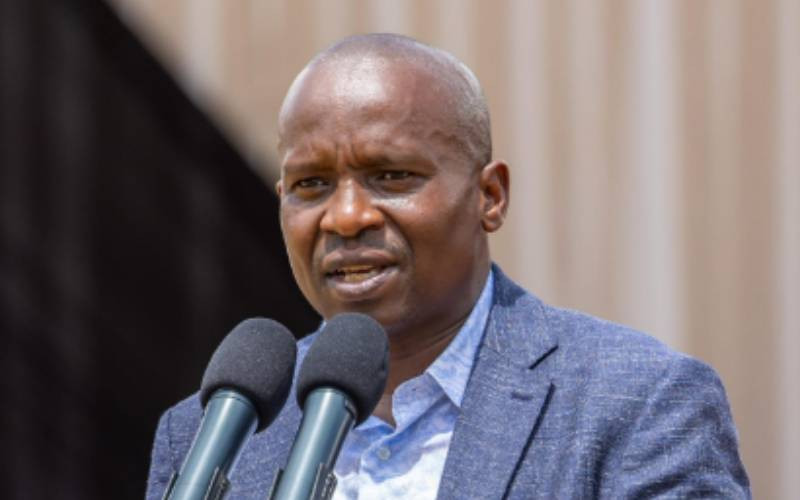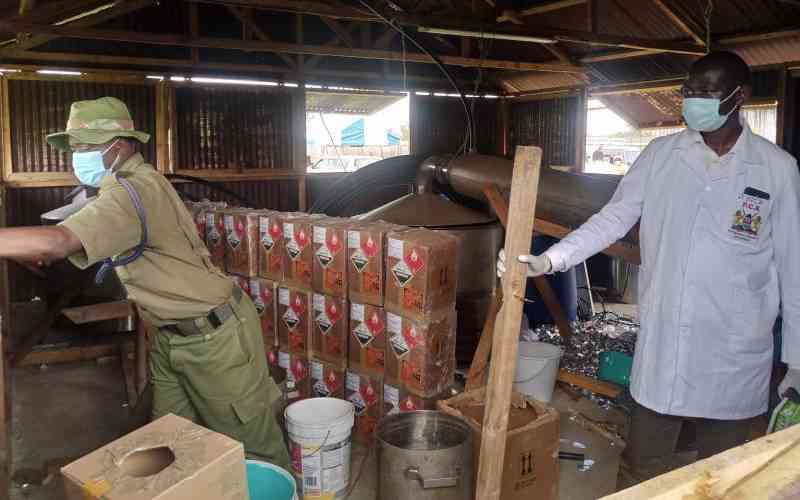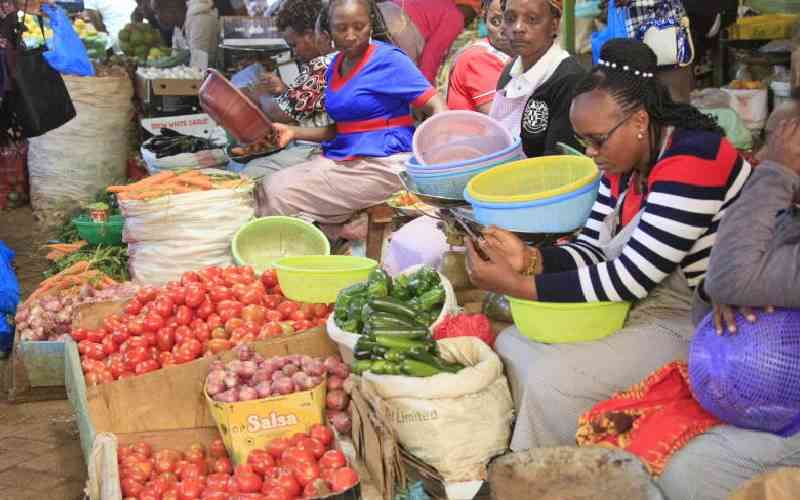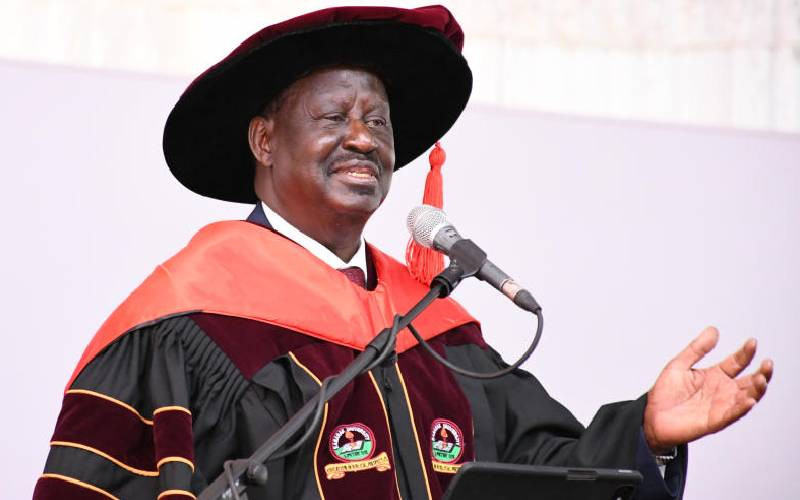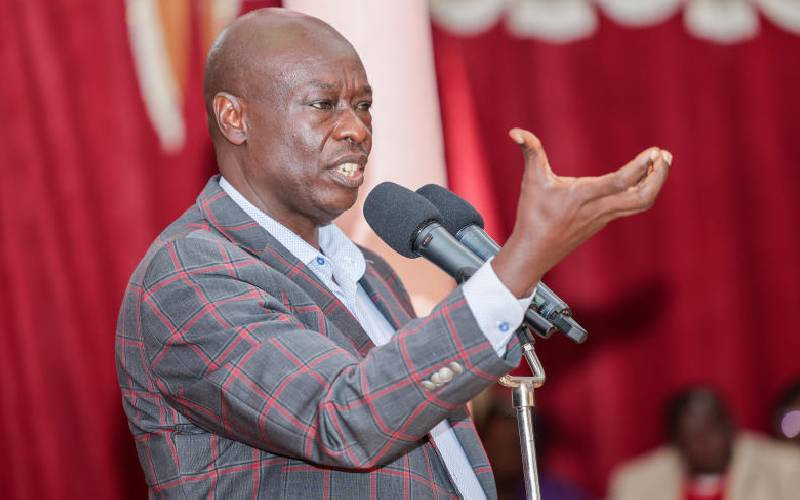The construction of the Sh19 billion Thiba Dam meant to double rice production in Kirinyaga County has stalled due to a financial crisis, Central Regional Coordinator Wilfred Nyangangwa has confirmed.
Consequently, over three hundred workers previously engaged by the contractor Strabag International have been suspended.
The suspended workers said they were sent packing because the government had not released money to the company.
A Strabag official who is however not authorized to speak for the company confirmed that the national government has not remitted money in excess of Sh1 billion which has left them with no other alternative but to suspend the work Nyangangwa however termed the suspension ‘short’ with resumption of construction being ‘soon’.
“It is true the construction has temporarily been suspended due to problem of resources,” he said. He blamed National Treasury officials of the delay in releasing the money.
“Once the problem is solved, the project will resume in the shortest time possible, we are taking the matter seriously,” he said.
Nyangangwa said that the government is committed to ensuring the project with the scheduled time to enhance irrigation of rice and Mwea and improve of the country’s food security.
“We have been told to go home until further notice because the company has no money to pay us and finance the project,” John Njiraine, a worker at the dam said.
Officials from the construction company said they have gone for over eight months without receiving any funding from the government which has virtually brought everything to a standstill.
“We are getting worried that the works at Thiba Dam which has been on good progress at 30 percent is now almost abandoned. We don’t exactly know what is happening,” said one of the official.
“There is even a possibility that cartels importing cheap rice to the country could be behind the whole thing trying to frustrate the work with intention of making sure the dam is not completed to enable them continue importing the rice,” the official said.
The Sh19 billion project was expected to be completed in 45 months but its Manager Eng. Stephen Mutinda always claimed the work could be completed much earlier before the problem occurred.
Mutinda previously claimed with all factors remaining equal and according to the work plan, the construction could have taken about 36 months to complete. But this will now change.
Delayed revenue Data from Kenya Bureau of Statistics shows that Kenya imports rice worth about 40 billion every year largely from Pakistan, Thailand, India, and Vietnam.
It is estimated that with the completion of Thiba Dam, this amount will be reduced by half or even more if it succeeds in proving more water to allow for three sea sons of rice per year, unlike the current two. While the current rice production during a good season is about 100,000 tones, or about 80 percent of Kenya’s total rice, it has been achieved without dedicated water flow.
Stay informed. Subscribe to our newsletter
The current rice scheme is fed by direct water flow from Thiba and Nyamindi rivers without a dam. But Thiba Dam will provide a holding ground for water, ensuring controlled flow even during the times of lower rainfall.
This is planned to increase normal production by about 100 percent, meaning 140,000 tonnes and since the water will double overall area under rice, Mwea is set to produce about 280,000 tonnes of rice.
There is much more opportunity as by the time the dam is fi nished, ongoing research on better yielding rice is likely to have reached the farm level.
Rice farms are also likely to be more mechanized by then. The storage of rice will have improved, eliminating post-harvest losses.
More farmers will also be educated on modern farming methods to ensure that they harvest more bags of rice per acre than they currently do.
For instance, while Kenya produces on average 4 tonnes of rice per 2.5 acres, Egypt produces double that at 8 tonnes while Vietnam produces 6 tonnes, same as China. Pakistan and India, exporters of rice into Kenya produce the same tonnage as Kenya, according to data aggregator IndexMundi.
It, therefore, means Kenya has a very big opportunity to become self-sufficient in rice if it can increase its yield per acre.
The project will also help in the stabilization of the irrigation water supply, allowing double cropping with the area under irrigation increasing from 25,000 acres to 35,000 acres.
The construction of Thiba dam is being fi nanced in partnership with the Japanese government through Japan International Cooperation Agency (JICA).
The contractor is STRABAG. The dam will be 40 metres tall and 1 kilometre long. It is expected to have a water holding capacity of 15 million cubic metres.
The construction will take 3 years and 7 months, meaning that it will be completed around July 2020. The dam is being constructed at Rukenya in Gichugu constituency, about four kilometres from Kutus town, the county headquarters.
 The Standard Group Plc is a
multi-media organization with investments in media platforms spanning newspaper
print operations, television, radio broadcasting, digital and online services. The
Standard Group is recognized as a leading multi-media house in Kenya with a key
influence in matters of national and international interest.
The Standard Group Plc is a
multi-media organization with investments in media platforms spanning newspaper
print operations, television, radio broadcasting, digital and online services. The
Standard Group is recognized as a leading multi-media house in Kenya with a key
influence in matters of national and international interest.
 The Standard Group Plc is a
multi-media organization with investments in media platforms spanning newspaper
print operations, television, radio broadcasting, digital and online services. The
Standard Group is recognized as a leading multi-media house in Kenya with a key
influence in matters of national and international interest.
The Standard Group Plc is a
multi-media organization with investments in media platforms spanning newspaper
print operations, television, radio broadcasting, digital and online services. The
Standard Group is recognized as a leading multi-media house in Kenya with a key
influence in matters of national and international interest.

